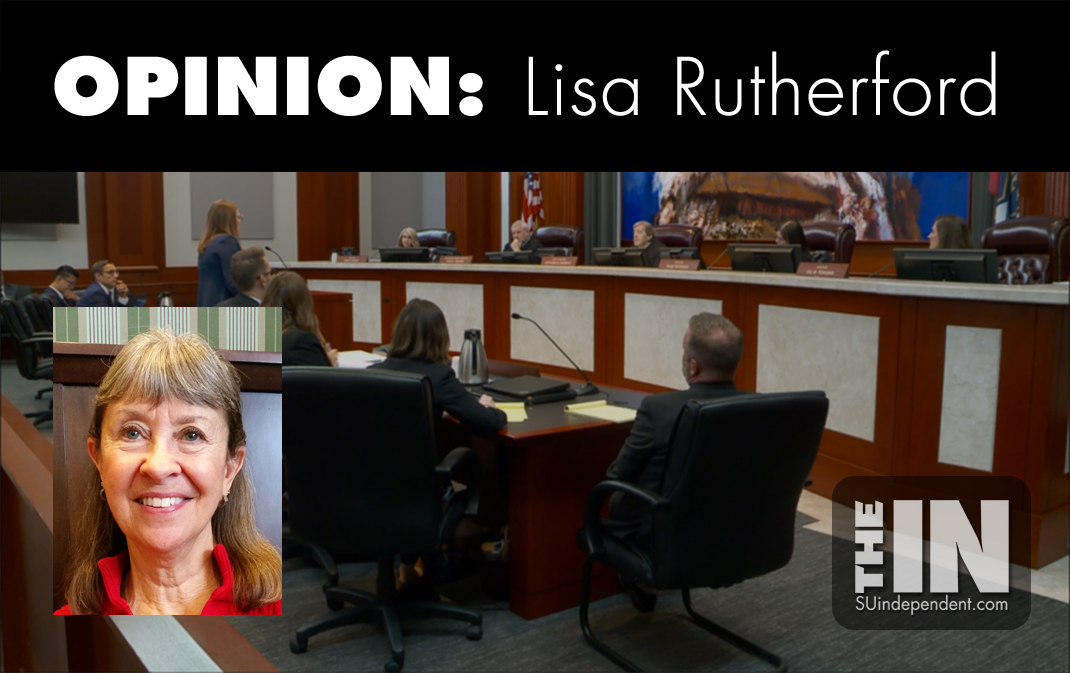
Ballot Amendments In Question After Supreme Court Decision
– By Lisa Rutherford –
On September 25, Utah’s Supreme Court unanimously – and for the second time! – ruled against Utah Legislators and their hastily written Constitutional Amendment D on the election ballot. This decision may affect all amendments on the ballot. Amendment D deals with redistricting boundaries. Amendments A and B deal with education funding. Amendment C deals with sheriff elections.
Constitutional Amendment D’s convoluted story began with an initiative – Proposition 4 – that narrowly passed in 2018. It created an independent redistricting commission to avoid gerrymandering which would create voting districts that benefit one political party over another. In 2020, the Utah Legislature passed SB200 a compromise bill between lawmakers and initiative supporters to oversee the redistricting process. In 2021, congressional districts were adopted that benefited Republicans after the Legislature made the independent commission’s recommendations “advisory” only and created their own map.
The Utah League of Women Voters and Mormon Women for Ethical Governance sued. In July 2024 the Republican-appointed Utah Supreme Court found unanimously in their favor and threw the case back to a lower court for a decision on the Legislature’s SB200 law, requiring that they show “compelling reason to pass the law” – a law that effectively usurps the will of the people.
Legislators called an emergency session to deal with the matter and, through a joint resolution, came up with Constitutional Amendment D to appear on the November ballot.
The League and Mormon Women sued again, asking that the amendment be removed from the ballot. The judge ruled that the ballot could remain on the ballot due to a printing deadline, but votes would not be counted. On September 14, the Utah Supreme Court agreed at the Legislature’s request to review the lower court’s ruling. Two issues were under consideration: did the Legislature publish the text of the amendment in newspapers as required and does the ballot language make clear what the amendment would do.
Conservative organizations support Amendment D in an effort to retain power and argue that “raw democracy, simply put, is the tyranny of the majority over the minority that is enabled by the use of ballot initiatives without legislative oversight.”
Many on the other side see “tyranny of the majority” when it comes to Utah having a super-majority of Republican officials making all decisions and cutting others out.
The court found that Amendment D “was likely to deceive voters and that the Legislature failed to comply with a constitutional requirement that the amendment be published in newspapers across the state.” Amendment D will appear on the ballot but votes will not be counted.
One additional point regarding Amendment D is needed. Legislators were playing on voters’ fears by including wording “Prohibiting foreign influence on ballot initiatives and referendums.” Although foreign influence is a concern, it is not a relevant issue but was meant to distract voters from the real intent by Legislators which was to take away Constitutional rights of the people of this great state. We need rights not distraction.
Constitutional Amendment A seeks to erase a long-standing constitutional guarantee that income tax revenue funds public education, higher education, and services for children and people with disabilities. If passed, the tax revenue would create a “budgetary stabilization account” – term used by promoters – to be used to fund other “unspecified” state needs but also fund education, as needed, to deal with enrollment changes and inflation.
Private school vouchers would also be allowed but with no accountability. Public schools are held accountable, but private and religious schools are not subject to the same standards. In 2023 Utah’s Legislature legalized vouchers. $82 million has been put in the program but how the money is being spent is in question. The Legisature will not receive a report until next year! In states such as Arizona and Florida, similar funds have been used for ninja warrior training, passes to ski resorts, golf equipment, big screen TVs, paddleboards and tickets to Disney World. Utah taxpayers deserve to know how our money is being spent before approving more.
Amendment A would eliminate the state sales tax (1.75%) on food. The Legislature is creating confusion by using the sales tax issue to lure voters to permit lawmakers to have access to tax dollars.
A coalition that includes the Utah PTA, Voices for Utah Children, the Utah School Employees Association and the UEA is encouraging a “no” vote. Opponents are asking that it, too, be tossed out due to deceptive wording and failure by Legislature to publicize properly before the election. The September 25 Supreme Court decision on Amendment D regarding language and publication requirements may end up affecting this Amendment, too. The Utah Taxpayers Association argues passage would give the Legislature budget flexibility. However, given the way these amendments have been written, that does not reassure me.
Constitutional Amendment B seeks to increase from 4% to 5% the annual distribution allowed from the State School Fund to fund public schools – an increase of about $14 million. This amendment is touted as a much-needed increase that will cost taxpayers nothing while supporting our schools and has little if any opposition. The State School Fund has grown from $50 million 30 years ago to its current $3.3 billion! I’ll certainly be voting yes on this one.
The recent Supreme Court decision is another black eye for House Speaker Schultz and Senate President Adams who authored the misleading ballot language. Because of these legislators, all amendments on the ballot are in question and votes on Amendment D will definitely not be counted.
Viewpoints and perspectives expressed throughout The Independent are those of the individual contributors. They do not necessarily reflect those held by the staff of The Independent or our advertising sponsors. Your comments, rebuttals, and contributions are welcome in accordance with our Terms of Service. Please be respectful and abide by our Community Rules. If you have privacy concerns you can view our Privacy Policy here. Thank you!
Click here to submit an article, guest opinion piece, or a Letter to the Editor




